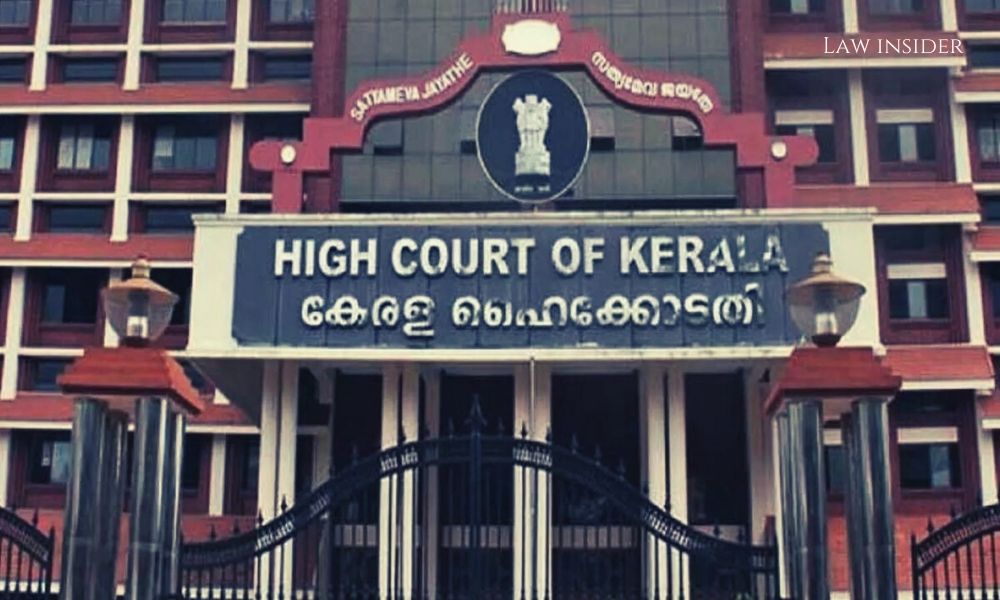Sakina Tashrifwala
Published on: 06 December 2022 at 22:46 IST
The Kerala High Court reiterated that the penalty provided under Section 31 of the Protection of Women from Domestic Violence Act would attract only for the breach of the protection orders passed under Section 18 of the Act and in case of violation of any other order passed under the 2005 enactment, the provisions of CrPC can be resorted to.
A protective order issued under Section 18 can be violated for an offence under Section 31, which carries a maximum sentence of one year in jail. On December 5, Justice A. Badharudeen issued a ruling in which he ruled on whether or not criminal proceedings under Section 31 would be initiated for a defendant who disobeyed an order given under Section 20 (monetary reliefs).
The court held despite adopting provisions under Section 31 to impose punishment for breach of ‘protection order’, the legislature never meant to impose penalty for violation of ‘residence orders’ or ‘monetary reliefs’ under the Act.
According to Justice Badharudeen, “in case of violation of any order passed other than an order passed under Section 18 of the D.V Act,” the provisions of the Cr.P.C can be resorted to. “Based on this principle, this Court held that Section 31 of the D.V Act would apply only on violation of the interim order or final protection order passed under Section 18 of the D.V Act.”
The court disagreed with Madhya Pradesh High Court’s finding in Surya Prakash v. Rachna whereby it was decided that Section 31 might be enforced in case of non-payment of support.
Justice Badharudeen remarked where the simple meaning of the words in the Statute is obvious and unambiguous, the meaning of the aforementioned words needs to be understood on its plain meaning to agree with the wisdom of the legislator.
“After categorising the orders that would be issued under the head “protection orders” in Section 18 of the D.V. Act, the legislature took extra care to include “protection orders” alone under Section 31 of the DV Act. The significance and ramification of expanding Section 31’s scope are also highly relevant to this discussion.”
“Is it fair to hold that a person’s failure and omission to pay a set amount on each month as maintenance or interim maintenance under Section 20(4) of the D.V Act would be punished under Section 31 of the D.V Act? The situation is the same with respect to all orders with the exception of the order under Section 18.”
“Moreover, if such a wide interpretation is allowed, the Courts would be over-flooded with cases under Section 31 of the DV Act and the abovementioned scenario cannot said to be intended by the legislators”.
The decision was made in a case that challenged proceedings begun under Section 31 of the Act for breach of an order imposed under Section 12 of the Act. The petitioner owes his mother and sister Rs 25,000 in maintenance payments, as ordered by the Magistrate under Section 12 of the Act.
Though the petitioner paid the same for three months, he defaulted subsequently. A complaint claiming conduct of crime under Section 31 of the DV Act was filed against him. The magistrate became aware of the crime after receiving the concluding report.
Advocate James Abraham argued before the high court on behalf of the petitioner that there is a distinction between “protections orders” under Section 18 and “monetary reliefs” under Section 20 and that Section 31 does not provide that an order passed under Section 19 or 20 would enable the Magistrate to take cognizance for the offence if the order were violated.
The petitioner’s mother, represented by lawyers M.B. Shyni and John K. George, argued that the decisions of the Karnataka High Court in Vincent Shanthakumar v. Christina Geetha Rani & Anr and the Madhya Pradesh High Court in Surya Prakash v. Rachna demonstrated that Section 31 would apply in cases covered by Sections 18 and 20.
An lawyer for the petitioner countered that an order under Section 19 or 20 is not an order under Section 18 and so cannot be a protection order, citing the Kerala High Court’s decision in Velayudhan Nair v. Karthiayani. Also cited was the Rajasthan High Court’s case Kanchan v. Vikramjeet Setiya, in which the high court endorsed the conclusion reached in Velayudhan Nair.
The bench quashed the pending proceedings against the petitioner before the Additional Chief Judicial Magistrate (E.O), Ernakulam, stating that the court cannot overturn the legislative wisdom to hold that a “monetary relief,” such as payment of maintenance, if disobeyed, also would attract significant penalty under Section 31 of the DV Act, treating the same as breach of a “protection order” or “interim protection order”.
“As a result, it has been decided that Section 31 of the DV Act’s penalty provisions would only apply to violations of protection orders issued under Section 18 of the D.V Act and not to violations of maintenance orders issued under Section 20 of the Act. In light of this, the plea in this petition has a good chance of being granted,”

